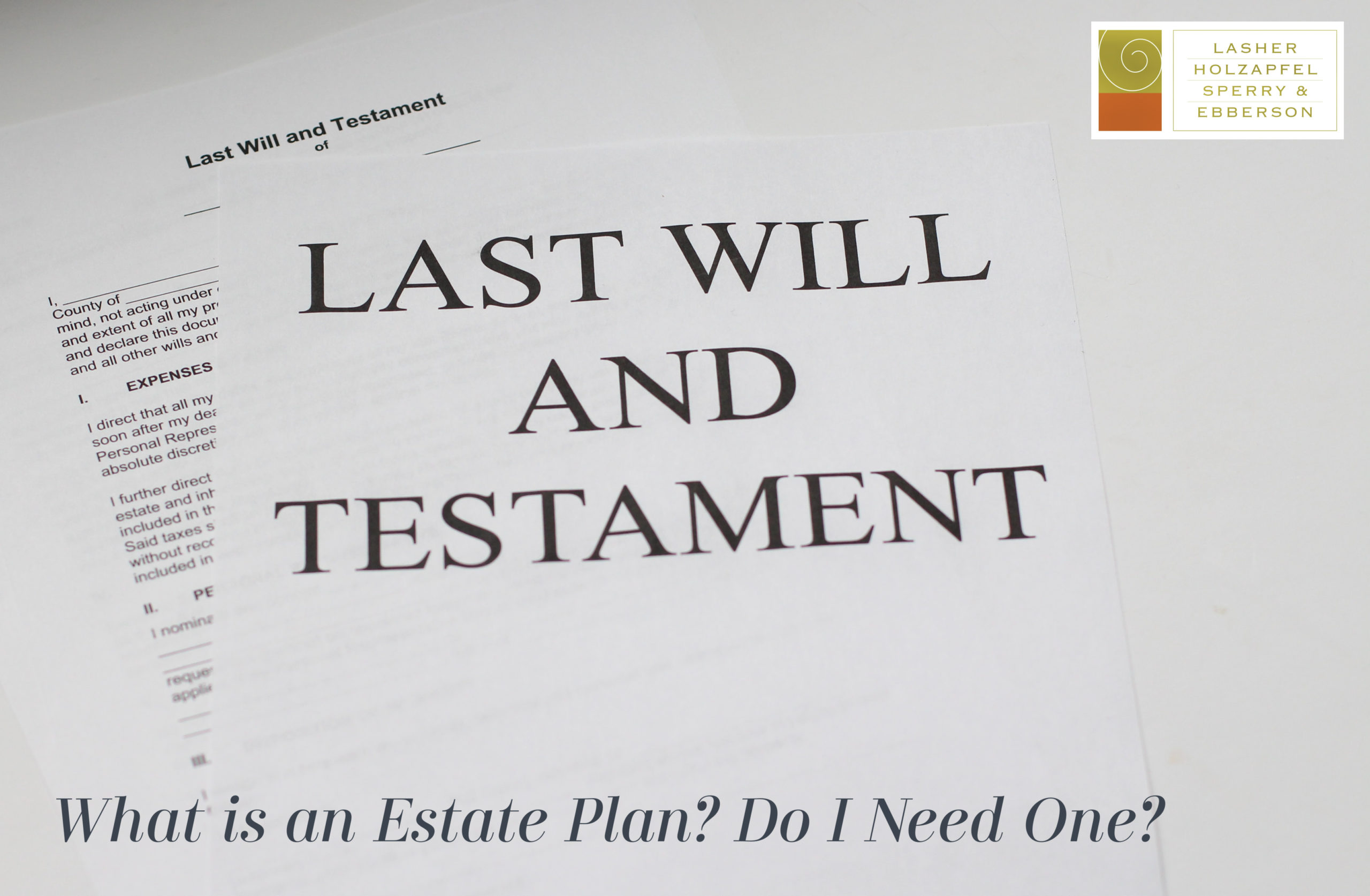WHAT IS AN ESTATE PLAN? DO I NEED ONE?

Posted on September 2, 2021 by Denver Gant
What is an Estate Plan?
An Estate Plan is a set of legal documents that memorialize how you want your assets distributed at your death. A good Estate Plan will also include documents that provide for options to manage your assets and health during your life if you are unable to do so yourself. Estate Plans can be very simple for estates with low amounts of assets or straightforward circumstances, and tremendously complex for larger or more complicated estates. A majority of people need a simple Estate Plan. Circumstances that may warrant a more complex Estate Plan include second marriages with children from one or both of the prior marriages, high net worth, differences in the value of the spouses’ estates, business succession planning, and estates with the potential for disputes among heirs.
In Washington State, documents in a simple Estate Plan might include:
- A Last Will and Testament that addresses how to distribute your real and personal property and names the people you wish to be guardian of your minor children and act as your Personal Representative to oversee the probate of your estate.
- A Durable Power of Attorney for Asset Management that names an agent (and successors) to manage your finances and investments, pay bills, and make legal and business decisions related to your assets if you become incapacitated or are unable to perform those acts during your life.
- A Durable Power of Attorney for Health Care that names an agent to act on your behalf in the event you are unable to make your own healthcare-related decisions during your life.
- A Living Will or Health Care Directive documents your wishes with regard to end-of-life preferences.
In addition, some simple Estate Plans may include:
- An Authorization for Disclosure of Heath Information that allows designated individuals to access your protected health care and medical information.
- A Notification of Disposition of Remains that memorializes what you want done with your remains when you die, whether you want a funeral or celebration of life, and, if so, details about those events.
- A Community Property Agreement with your spouse that characterizes the property you both own as community property and, in some cases, can control the disposition of that property when the first spouse dies.
Trusts are a common component of both simple and complex Estate Plans. Trusts may be created and funded during your life (inter vivos or revocable living trusts) or included within your Last Will and Testament and funded at the conclusion of the probate of your estate (testamentary trusts). A trust names a trustee to own and manage the assets in the Trust in accordance with your wishes for the beneficiaries (typically your spouse, children, or grandchildren) until they reach a certain age or the trust reaches a point where it is to terminate and distribute the remaining assets to the beneficiaries. Trusts are used in Estate Plans for number of reasons, including to manage assets for the ongoing care of a surviving spouse and/or children (who cannot legally own property until they are age 18), to avoid or minimize estate taxes, to protect the assets from creditors or mismanagement, to restrict the use of the trust assets, or to avoid probate in states where you own property. Complex Estate Plans may utilize several types of trusts to reduce or minimize estate taxes, which can be more expensive and time-consuming to create and administer.
Do I Need an Estate Plan?
Absolutely! Whether you:
- Have minor children who will need a Guardian;
- Need a trust to protect and manage assets for your spouse and/or children should you die;
- Want to ensure that your estate passes through probate quickly and efficiently;
- Want to ensure that the bulk of the assets in your go to your family and friends, and not the government through the payment of estate taxes;
- Want to provide an orderly distribution of your estate to avoid the potential heart wrenching fight over assets (or children); or
- Simply want to ensure that your medical wishes are adhered to and your finances are managed – even if you are become incapacitated;
You need an Estate Plan.
Once your Estate Plan is complete, be sure to reevaluate it regularly. Circumstances that may warrant revisions to your Estate Plan include:
- Marriage, divorce, or remarriage;
- Birth and maturation of children and grandchildren;
- Altered relationships with people you named as Guardian, Agent, Personal Representative, or Trustee;
- Relocation to a different state;
- Significant changes to your financial circumstances; and
- Revisions to estate tax laws.
Any or all could merit changes to your Estate Plan. The Estate Planning attorneys at Lasher Holzapfel Sperry & Ebberson PLLC are available to help determine the best Estate Plan for you and your family.

